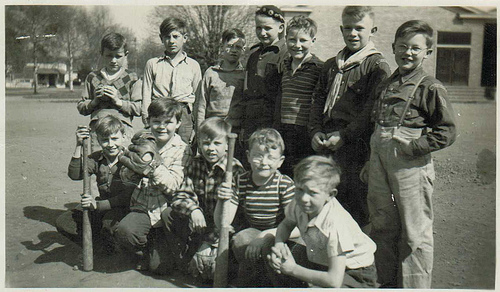My son does not have problems making friends. He can quickly adapt to new social settings and engage with kids of various ages with relative ease.
He falls into the “extrovert” category.
So, my challenge as a parent is to help him navigate his relationships and focus on those which are the most positive and do not lead to trouble. And in his last “pre-teen” year, the importance of helping him exercise judgement in this arena becomes even more critical as his independence increases.

Photo Credit: HA! Designs – Artbyheather Flickr via Compfight cc
Think about your kids and their friends. Are there some friends who make your kids hyper and abandon good judgement? Are there some friends who bring out your kids’ creativity? Are there some friends who have shared brokenness at home and can be a reminder to your kids that they are not alone?
It seems a key to helping them internally process this (rather than simply lecturing them) is to help them know themselves and have a solid grasp of their identity. I’ve used the line “your behavior is a reflection on me” a time or two, but I do not think it has the same impact as asking them how they view themselves, how they want others to view them, what kind of work ethic they want to develop, and how they treat adults and members of the opposite sex.
Then, in a completely agnostic way, ask them how they and others view specific friends. Let them do their own processing and do not do it for them. Do not correct them, just ask questions.
“How does Johnny treat the teachers and lunchroom monitors?”
“How does Jane act around her parents? Does she talk back?”
“Does Sally play well on teams or does she distract others?”
At twelve, my son has a good sense of himself, but often comes into conflict with wanting to pal around with the “fun” crowd who draw him closer to the line than he knows he should go. Those who regularly say the words he is not allowed to say at home. Those who do not respect their parents, but are very funny and have the best jokes.
You and I have friends in many different categories. We know the ones we need to limit and those who make us better people – knowledge derived from mistakes and experience. We need to give our kids the tools and grounding in who they are/want to be early so they make fewer mistakes.
Does your kid have a good friend who both you and they know are not always the best influence? How do you handle the situation?

